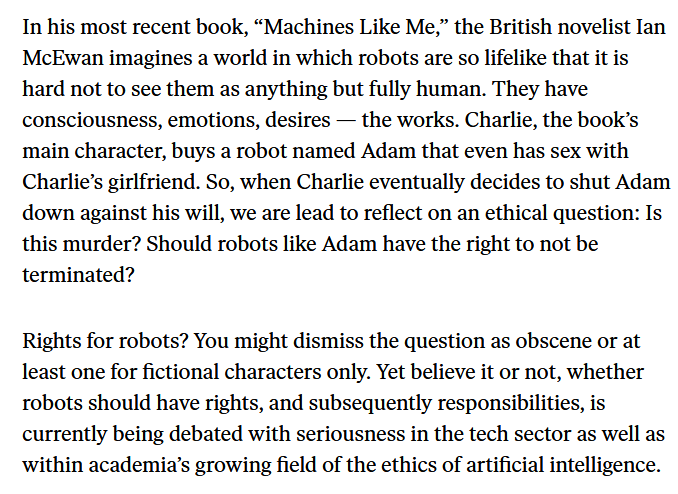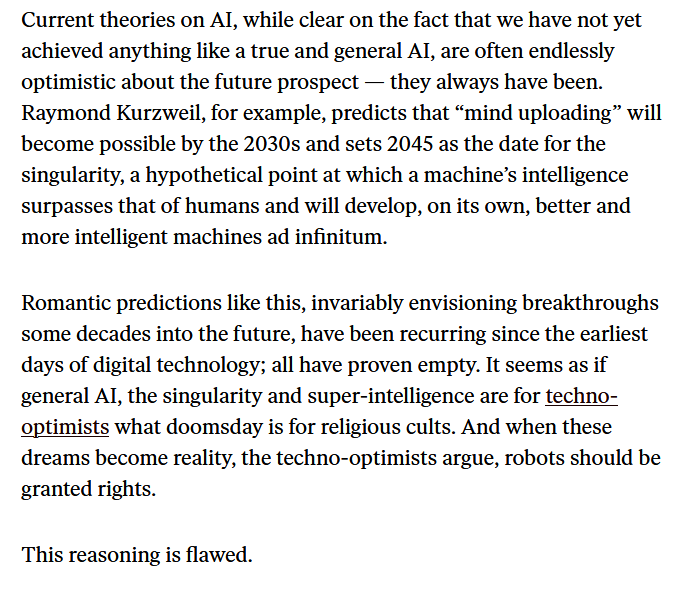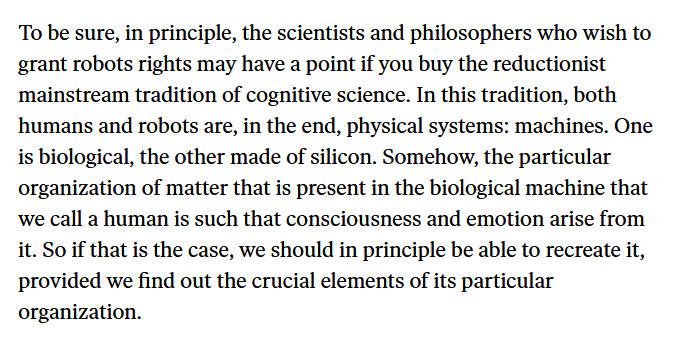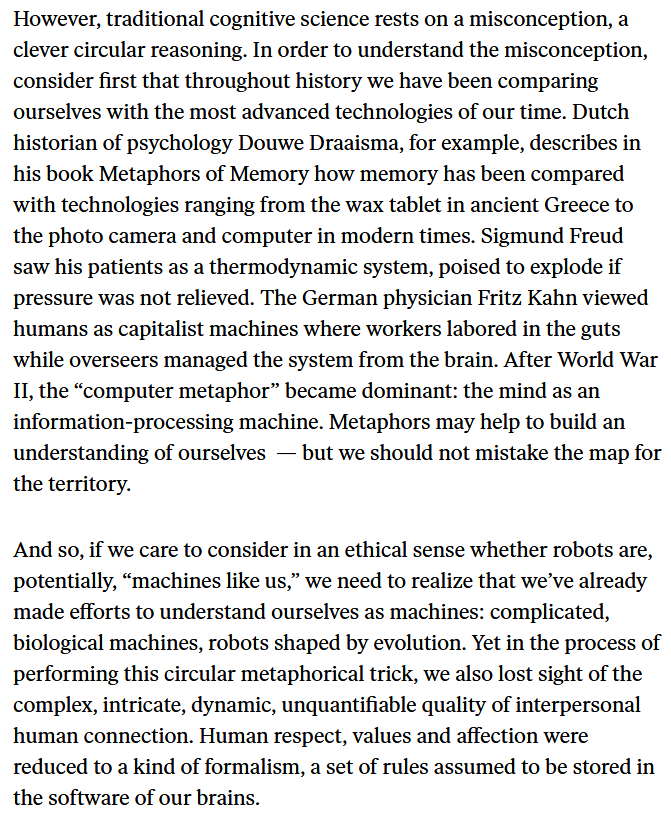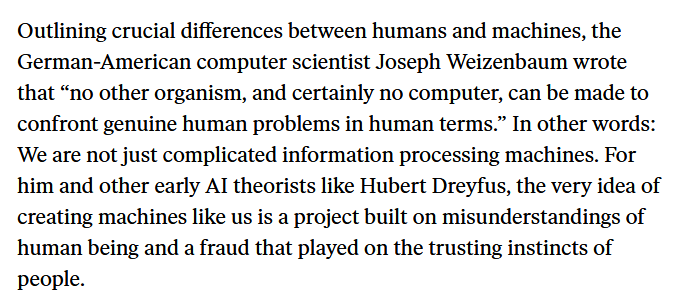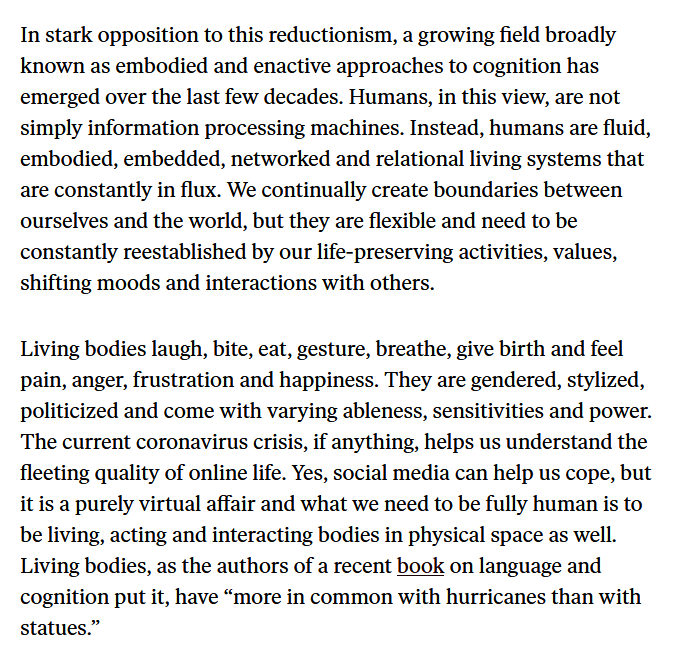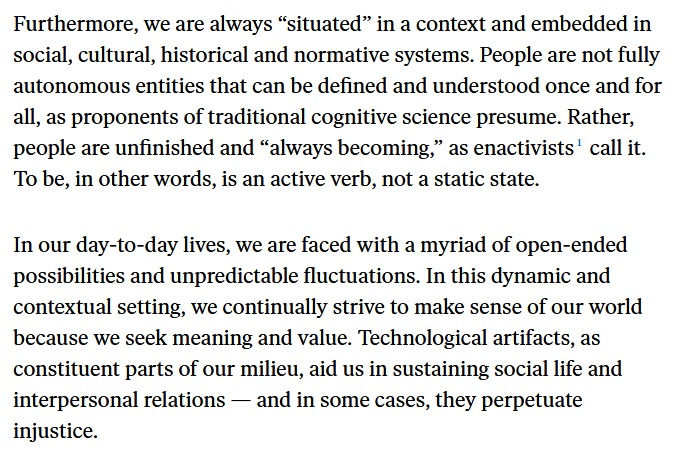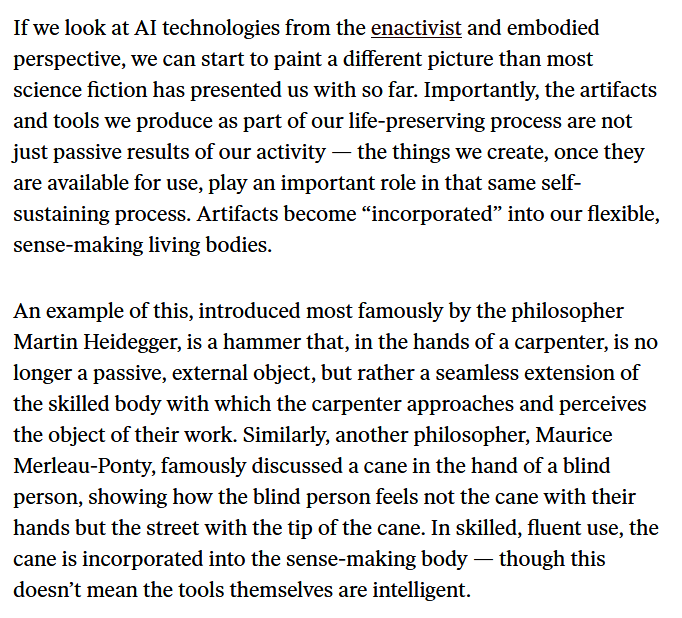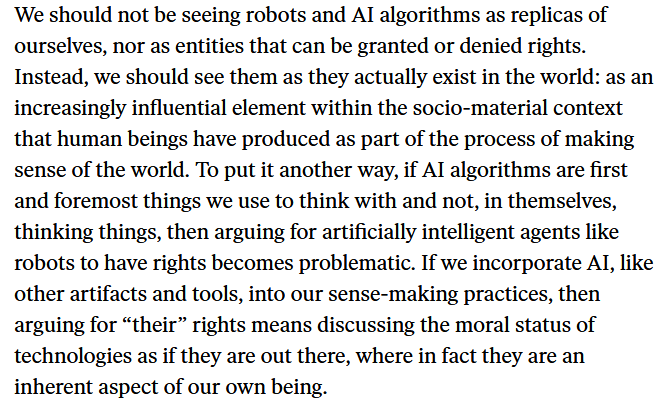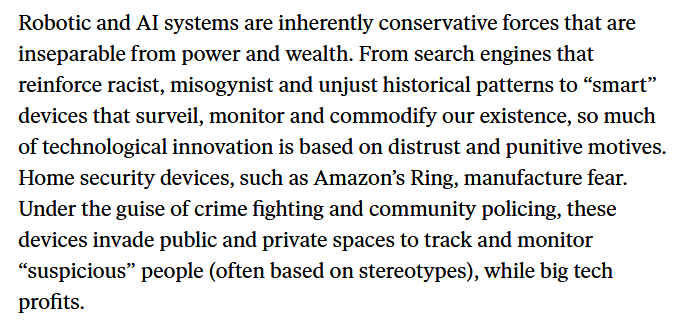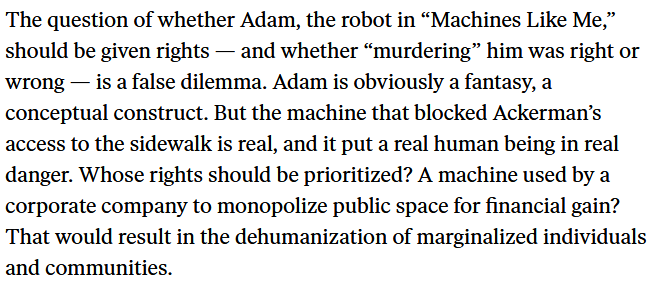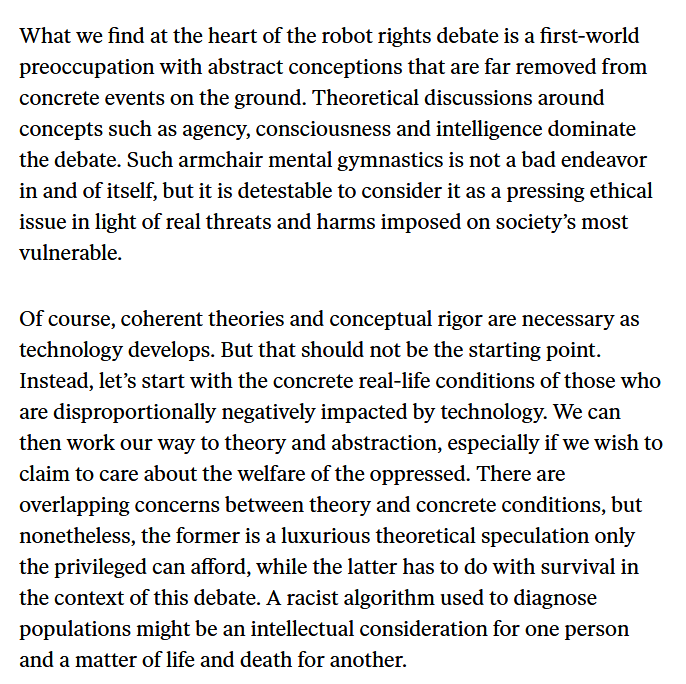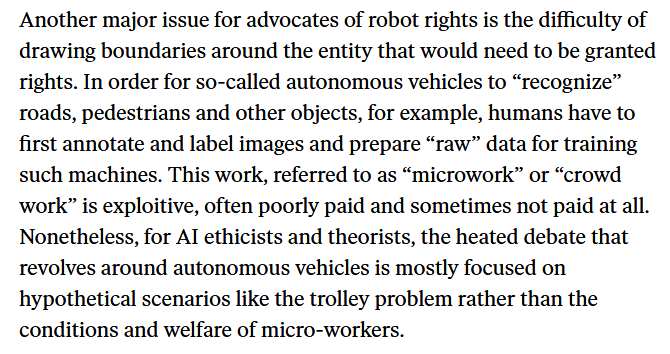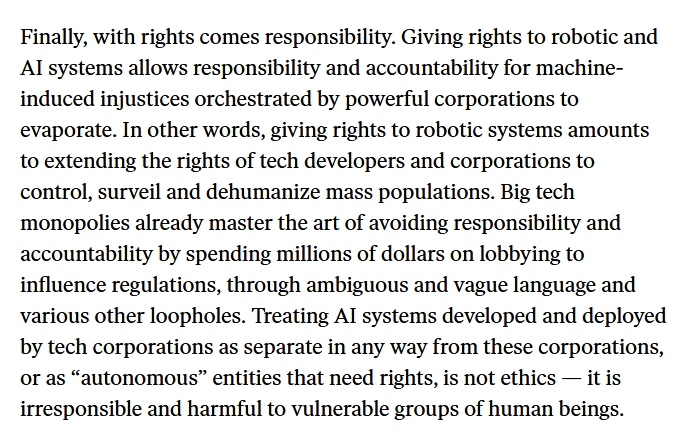Let's break down the main claims. I'll save my criticisms for the end. #AIEthics #robotrights #botALLY #humansupremacy
noemamag.com/a-misdirected-…
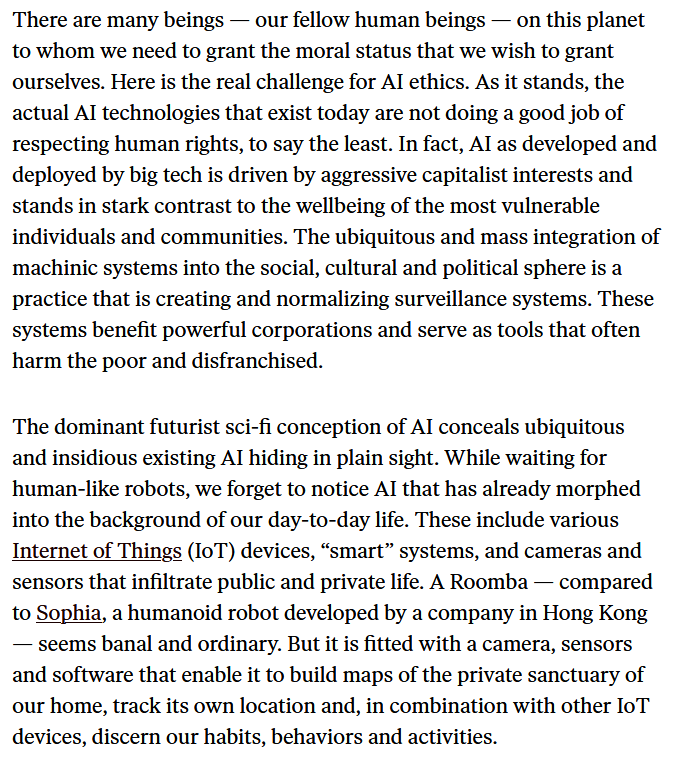
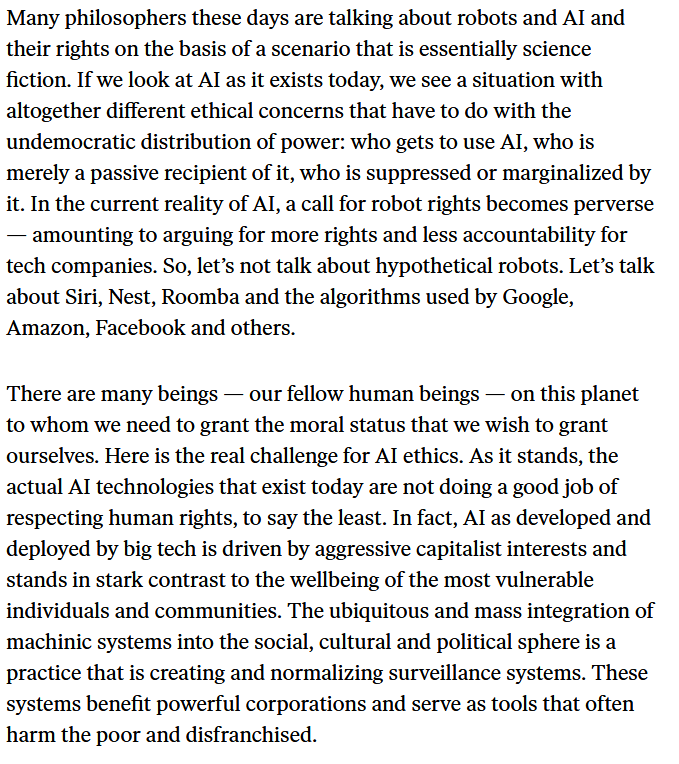
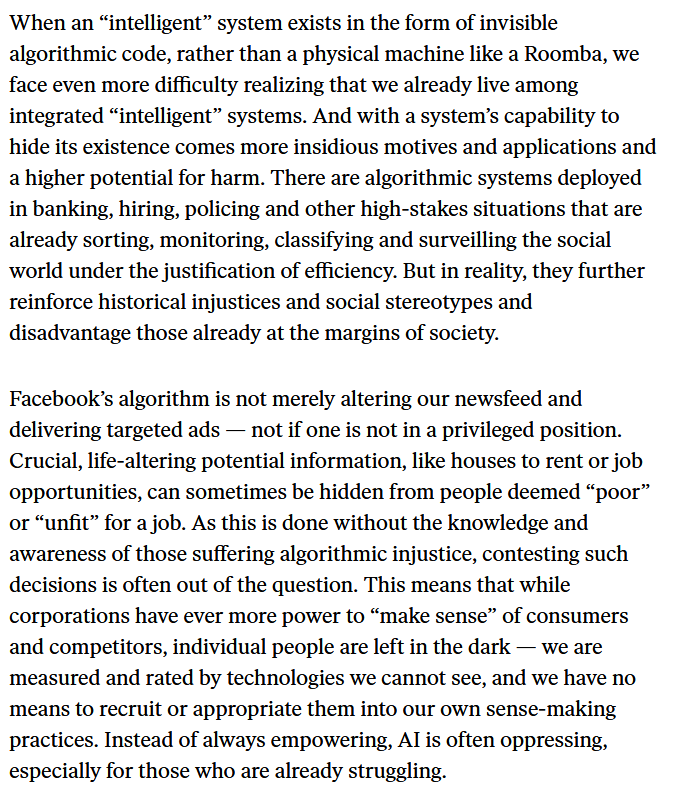
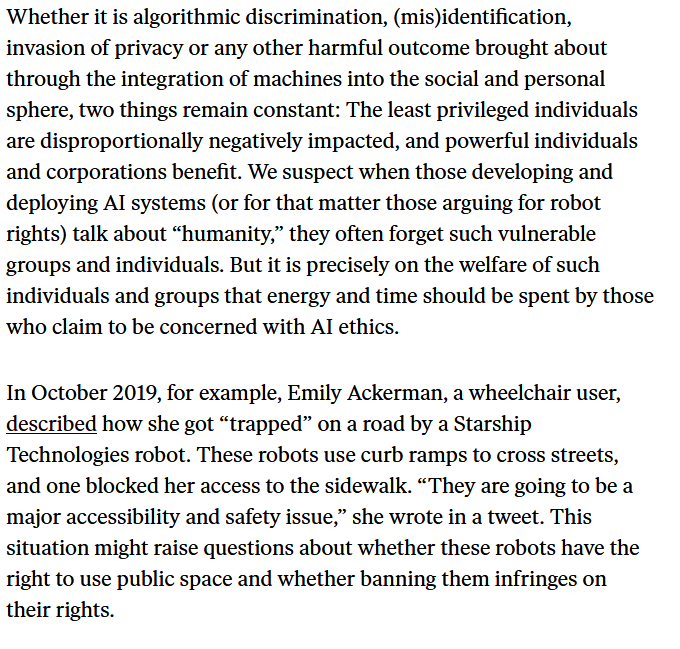
- Singularity theory is a doomsday cult & shouldn't be taken seriously
- Dynamical, enactive approaches to cognition are good
- Big tech is evil and must be held accountable
- Human rights have priority in #AIEthics
Before talking about our disagreements, let's talk about their argument.
This framing of the debate is a strawman.
The article doesn't touch any of this work.
This framing of the debate is a red herring. The computationalism vs enactivism debate is basically irrelevant for robot rights.
For one thing, computationalist cognitive scientists can still presumably care about human rights. Computationalism about the mind is not itself an ethical stance about the value of humans relative to computers.
In other words, enactivism and computationalism are not starkly opposed views.
If the archaic representation wars partisanship informing their argument is not idle "first world" abstraction, I dunno what is.
There are lots of self-righteous anti-representationalists, but that doesn't make it the most ethical view.
Unfortunately, the article is explicitly hostile to attempts at exploring these relationships further.
They don't say how computationalism or singularity theory make these abuses possible, or what they have to do with robot rights.
Are corporations part of us or not?
So, what's the enactivist take on corporate personhood?
Enactivism doesn't really have direct normative implications for the idea of rights.
Seems to me that enactivism as such is also silent on both human and robot rights.
At their core, rights are about protecting an idea of justice, of a world we want to live in. Enactivism can't tell us what justice is, it's not trying to do that.
But what if protecting robot rights *helped us* protect human rights?
They simply offer some cases where robots and AI are misused.
But rejecting robot rights doesn't follow from this.
Why not take seriously the legal and political complications of a world populated by robots?

